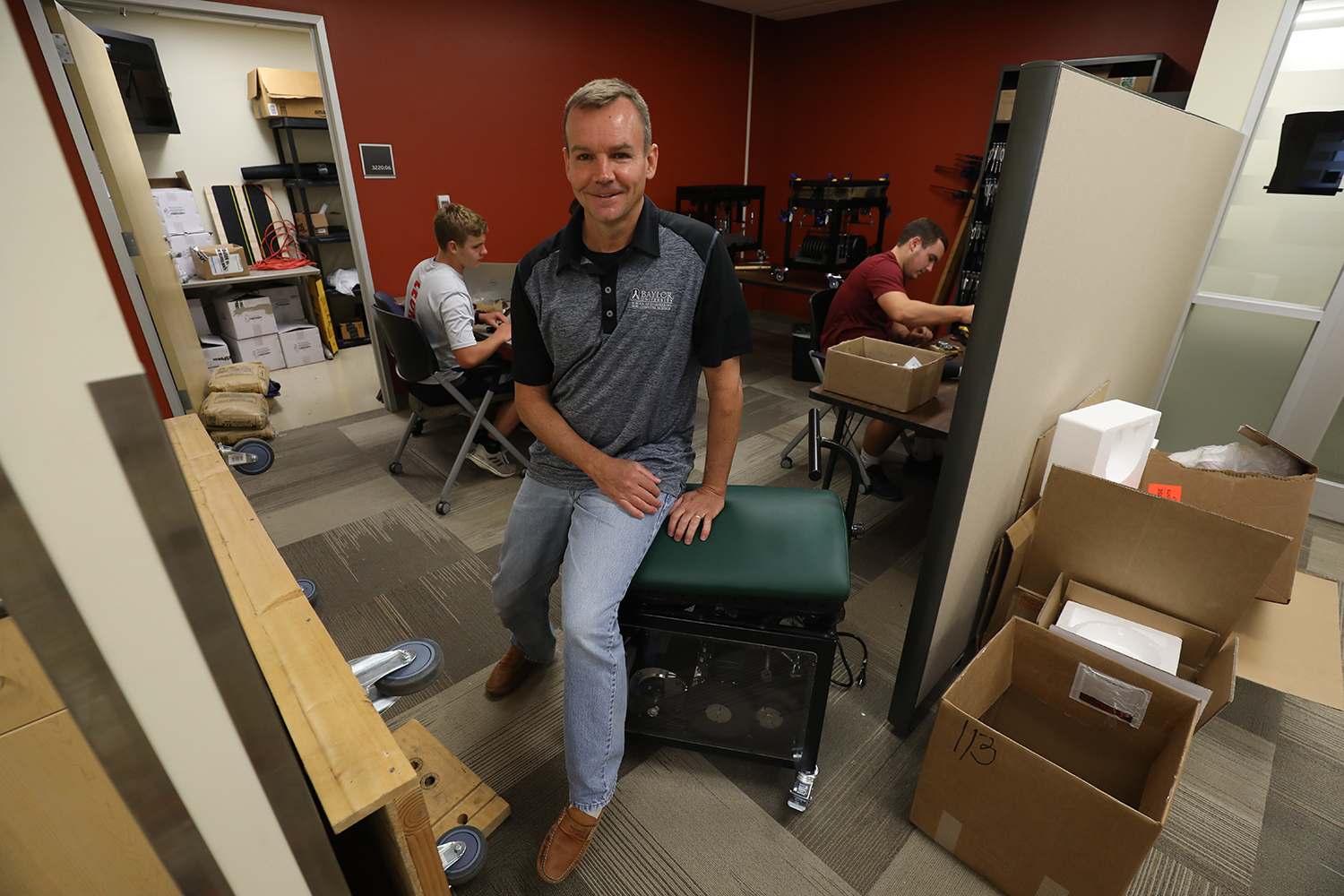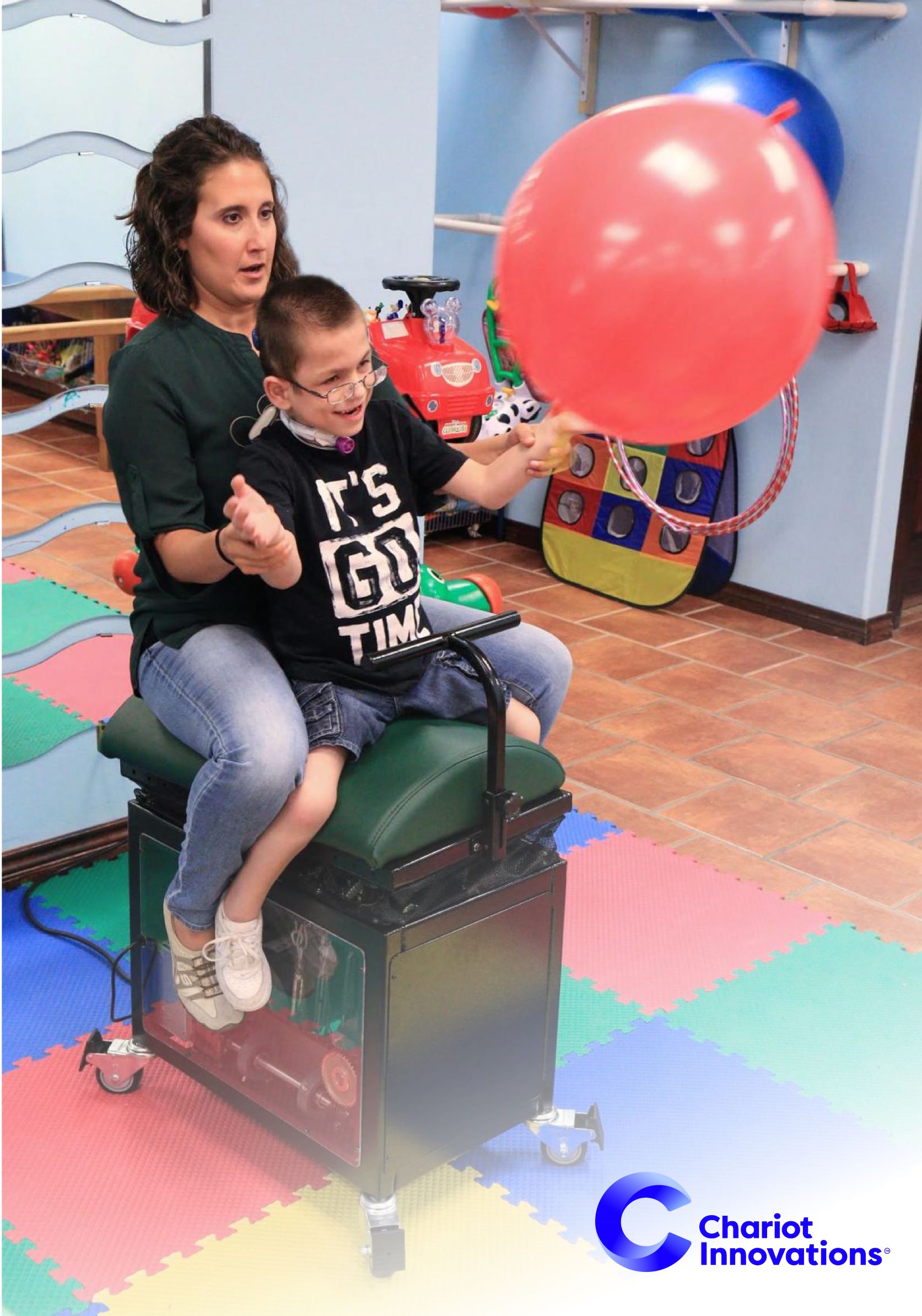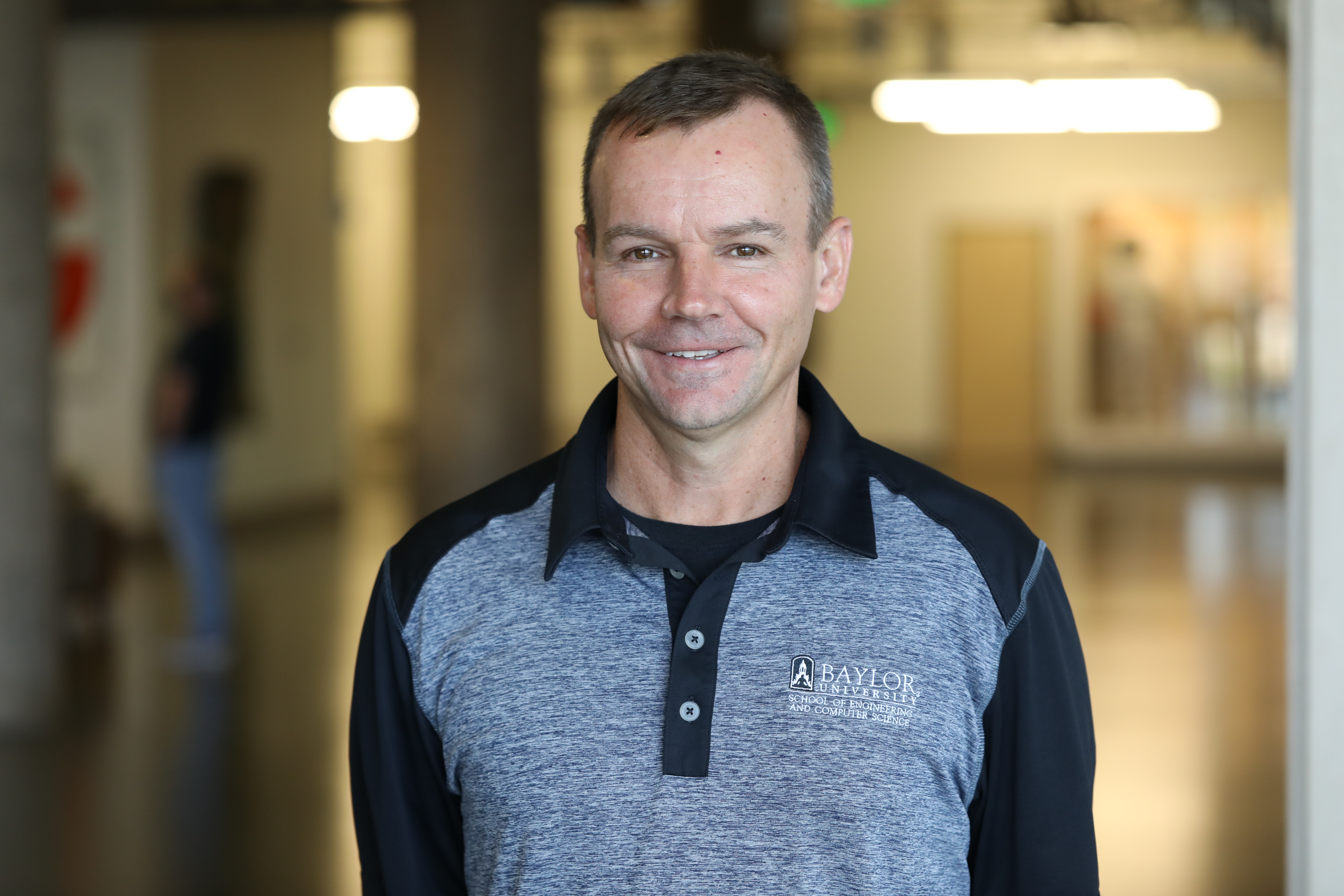Baylor Professors Receive Grant to Study Simulated Hippotherapy Treatment for Children with Autism



An interdisciplinary team at Baylor will evaluate a device that simulates the motion of riding a horse as an effective treatment for children with autism
Media Contact: Lori Fogleman, Baylor University Media and Public Relations, 254-709-5959
Follow us on Twitter: @BaylorUMedia
Written by Blake Thomas, Office of the Vice Provost for Research
WACO, Texas (Aug. 21, 2020) – An interdisciplinary team of Baylor University scientists and engineers has been awarded a nearly $600,000 grant from the Texas Higher Education Coordinating Board to study the effectiveness of a device that simulates the motion of horseback riding as a treatment for children with autism.
A growing body of evidence suggests that therapeutic horseback riding can help children with autism achieve improved social and motor skills as well as reduce irritability and hyperactivity. The exact mechanism by which it works is unknown, but researchers believe that the complex, three-dimensional motion of a horse’s gait leads a rider to move his or her body to maintain equilibrium, stimulating sensory processes, and engaging neurological connections that are sometimes deficient in children with autism.
However, geographic, physical, and economic barriers can limit access to this therapeutic option for some children, which motivated Brian Garner, Ph.D., associate professor of mechanical engineering in Baylor’s School of Engineering and Computer Science, to invent a device – the MiraColt – that mimics the motion of riding a horse through an elegant system of pulleys and gears.
Funds from the grant will allow Garner and his Baylor collaborators, Beth Lanning, Ph.D. (public health), Julie Ivey, Ph.D. (educational psychology), Paul Fillmore, Ph.D. (communication sciences and disorders) and Jonathan Rylander, Ph.D. (mechanical engineering),, to test the effectiveness of using the device, in addition to other existing therapies and treatments for autism. Research participants – children with autism referred to the program through the Baylor Autism Research Group – will spend time riding the mechanical horse while performing other motor and cognitive activities over a 10-week treatment program.
The participants also will undergo another 10-week program in which they perform the same motor and cognitive activities while sitting still. Comparing the outcome of the treatments administered while riding the MiraColt to those administered while sitting still will allow the researchers to evaluate the effectiveness of the horseback riding simulator.
“This is a multi-disciplinary project,” Garner said. “We have faculty involved from mechanical engineering, health sciences, educational psychology, and communication sciences and disorders. The assessments will be looking for improvements in speech and language, balance, muscle coordination, and even brainwave activity using EEG helmets.”
While Garner and his team have performed studies of the physiological effects of using the MiraColt on healthy adults, this project will represent the first full-scale attempt to measure the device’s effectiveness in children with autism.
From lab to market
Garner has been granted a patent on his invention and formed a company called Chariot Innovations to develop and market the MiraColt with the assistance of the Lab to Market (L2M) Collaborative. L2M is a joint effort between Baylor, Blueprints Lab, and local venture capital firm Waco Ventures to move ideas, inventions, and technologies with real-world impact from the laboratory to the marketplace.
Allen Page, a founding partner of Waco Ventures, serves as the chairman of Chariot Innovations. As the father of two children with autism, Page understands the need for research-based interventions that make treatment options available to more families.
“There are a number of interesting studies suggesting that hippotherapy is helpful for children with autism,” Page said. “We anticipate that this research will connect some of the benefits of hippotherapy to the Miracolt, which provides a convenient and affordable option to supplement hippotherapy treatment, or receive some of its benefits more consistently. In March, the CDC estimated that one in every 54 children has been diagnosed with autism, so the potential to help this growing population is what makes this research so timely.”
Using three-dimensional motion capture technology to understand the organic motion of horseback riding and then create a device that reproduces that motion is a challenging technical feat. Garner, however, views the undertaking as less of a scientific exercise than as an expression of his faith.
“We’re taking technology and applying it in a way that will hopefully improve people’s lives,” Garner said, “and that makes it a perfect fit for Baylor’s Christian mission. It’s not just about meeting people’s physical needs; it’s broader than that. Our hope is that there will be a spiritual impact as well.”
ABOUT BAYLOR UNIVERSITY
Baylor University is a private Christian University and a nationally ranked research institution. The University provides a vibrant campus community for more than 18,000 students by blending interdisciplinary research with an international reputation for educational excellence and a faculty commitment to teaching and scholarship. Chartered in 1845 by the Republic of Texas through the efforts of Baptist pioneers, Baylor is the oldest continually operating University in Texas. Located in Waco, Baylor welcomes students from all 50 states and more than 90 countries to study a broad range of degrees among its 12 nationally recognized academic divisions.
ABOUT THE SCHOOL OF ENGINEERING AND COMPUTER SCIENCE AT BAYLOR UNIVERSITY
In 2020, Baylor’s School of Engineering and Computer Science (ECS) is celebrating 25 years of preparing its students to be innovators for worldwide impact by training graduates for professional practice and responsible leadership with a Christian view. Students can choose from majors including bioinformatics, computer science, electrical and computer engineering, general engineering and mechanical engineering. ECS also offers graduate programs in all areas of study within the School. We stand out from the crowd through Christian commitment, a strong community, expert accessibility, leading practical experience and teamwork. Visit baylor.edu/ecs to learn more and follow on Facebook at facebook.com/BaylorECS and on Instagram at @Baylor_ECS.